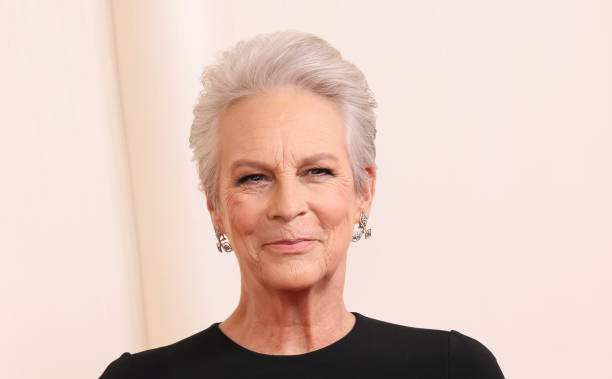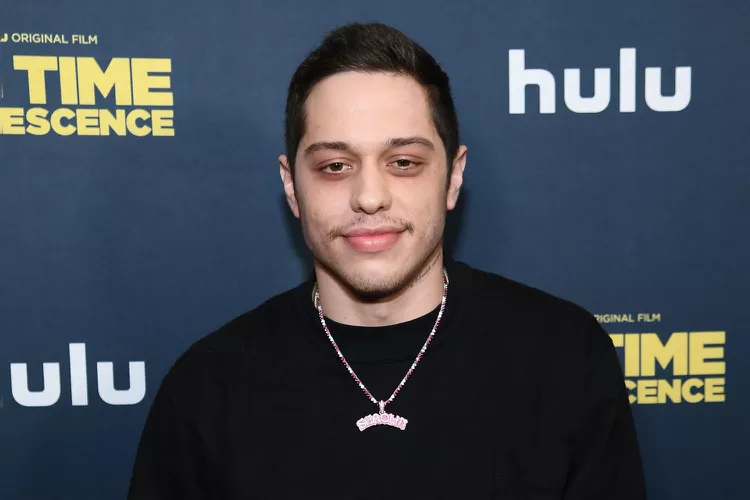
Who is Russell Brand?
Russell Brand, a 48-year-old Essex native, catapulted to fame as the host of “Big Brother’s Big Mouth.” His career trajectory took him from comedy beginnings at Hackney Empire to Hollywood stardom, and a brief marriage to a renowned pop star. At which time he was infamous for being one among thousands of celebrities with a drug addiction.
Beyond entertainment, he’s known for his distinctive political and societal viewpoints. These include delving into controversial and popular topics through his YouTube and Rumble videos.
On the subject of celebrities with drug addictions, Brand’s frankness about his struggles with illegal drug use and sex addiction has been a constant theme in his public life. These personal battles were candidly chronicled in his autobiography “My Booky Wook.” His experiences have shaped his journey into political activism, making him a complex public figure.
Early life of Russell Brand
Russell Brand’s early life in Essex, England, was marked by significant challenges that would shape his future struggles. Born on June 4, 1975 in Orsett, Essex, he was the only child of Barbara Nichols and Ronald Brand. His parents separated when he was just six months old, leaving him to be raised by his mother. This early familial disruption set the stage for a tumultuous childhood.
Brand faced numerous hardships during his formative years. When he was eight, his mother was diagnosed with uterine and breast cancer, leading to a period where he lived with relatives. At the age of 14, Brand developed bulimia nervosa, an eating disorder. These personal struggles contributed to his later status as a celebrity with drug addiction.
His foray into entertainment began with a theatrical debut at 15 in a school production of “Bugsy Malone.” He attended Grays School and enrolled at the Italia Conti Academy in 1991. However, he was expelled in his first year due to illegal drug use. This period was also marked by a complex relationship with his father, including a controversial trip to Thailand.
Despite these challenges, Brand’s creative talents began to surface. He started his career as a film extra and then as a stand-up comedian, showcasing his talent at the Hackney Empire New Act of the Year in 2000. His experiences, both harrowing and formative, heavily influenced his later work, including his stand-up and autobiographical writings.
Did Russell Brand get into drug use because of his celebrity status?
Russell Brand’s descent into drug use, particularly heroin, was deeply mixed with his personal struggles and his search for relief from the pain of living. Brand himself has spoken candidly about the irrational nature of addiction, highlighting the lack of control addicts have over their substance use and the necessity of structured help for recovery. During his time as a Hollywood celebrity, he described drug addiction as a serious disease with potentially fatal outcomes such as jail, mental institutions, or death.
Brand’s addiction to heroin, which he once paradoxically joked about in comparison to his commitment to vegetarianism, was a part of a larger pattern of trying to anaesthetise the pain of life and handling celebrity and fame. He emphasised that the priority for any addict is to ease the day’s passage with some form of purchased relief.
Did Russell Brand ever publish an auto-biography about his struggles as a celebrity with drug addiction?
In his book “Recovery: Freedom from Our Addictions”, Brand delved deeper into the psychology of drug addiction, especially as a celebrity. He spoke about the constant search to fill a void, a yearning for wholeness that often leads to addiction. He described his own euphoria at the prospect of obtaining material objects and how this yearning was a misguided attempt to find completion and connection.
Brand’s journey through addiction as a famous individual also involved other substances and behaviours. These range from eating disorders to sex addiction, demonstrating the complex nature of addictive behaviour. He openly discussed using various substances, including crack, marijuana, meth, alcohol, and hallucinogens, to cope with his inner turmoil.
In 2003, Brand hit rock bottom with his heroin addiction. He faced a turning point in his career as a renowned celebrity. With the help of his friend and manager, Chip Sommers, Brand made the decision to seek recovery. He turned to Alcoholics Anonymous and the 12-step program, a crucial step in his journey towards sobriety and a healthier, more fulfilling life.
What types of drug addictions did Russell Brand have as a celebrity?
Russell Brand’s journey through drug addiction as a celebrity is filled with varied struggles. His story is not just about the abuse of substances but also about the deeper psychological battles that accompany addiction.
Brand’s earliest encounters with drug addiction, before becoming a celebrity, were not with substances but with behaviours. As a teenager, he developed bulimia nervosa, an eating disorder characterised by a cycle of bingeing and purging. This disorder was his first attempt at using external means to cope with internal turmoil, a pattern that would recur throughout his life.
As he entered his late teens and early twenties, Brand’s addictive behaviours escalated to include substance abuse, which expanded when he achieved fame and celebrity. He began experimenting with drugs like marijuana, ecstasy, and LSD. These substances offered temporary escapes from the challenges he faced, including a turbulent home life and a fraught relationship with his father. However, they also set the stage for more serious addictions.
The most significant and destructive of Brand’s substance addictions was to heroin. This addiction became the centrepiece of his struggles, a dependency so overpowering that it cost him jobs, relationships, and led to multiple arrests. Heroin, for Brand, was more than just a drug; it was a means of numbing the deep-seated pain and disconnection he felt from the world around him.
Alongside his heroin addiction, Brand also struggled with alcoholism. Alcohol, like heroin, provided a temporary respite from his personal demons. It was another piece in the puzzle of his addictive behaviours, each substance or behaviour serving as a misguided attempt to fill an emotional void.
What types of non-drug related addictions did Russell Brand have as a celebrity?
Brand’s addictions extended beyond substances to include sex addiction. This addiction manifested as a compulsive need for sexual encounters, another way for him to seek momentary relief from his psychological distress. It was part of the broader pattern of seeking external solutions for internal problems.
Throughout his life, Brand has been open about his struggles with ADHD and bipolar disorder, which likely played a role in his addictive behaviours.
Brand’s story of addiction is a reminder of how behavioural and substance addictions can mix together, creating a complex web of challenges that can take years to untangle. His journey towards recovery and sobriety, however, serves as an inspiring testament to the possibility of overcoming even the most entrenched addictions.
Which other celebrities were once addicted to drugs?
1. Drew Barrymore
Barrymore, a renowned actress, faced addiction from a very young age. Exposed to the glamour and pressures of Hollywood early in life, she began abusing alcohol, marijuana, and cocaine as a teenager. Her struggles led to multiple stints in rehab and a journey towards sobriety that has been both challenging and inspiring.
2. Robert Downey Jr.
Known for his roles in blockbuster films, Downey’s career was nearly derailed by his addiction to drugs, including heroin. He faced several arrests and stints in rehab before achieving sobriety. Downey’s story is a remarkable example of recovery and professional resurgence.
3. Elton John
The legendary musician struggled with various addictions including alcohol, cocaine, and bulimia. His journey to sobriety was a long one, involving rehab and a strong support system. Elton John’s recovery has been a significant part of his life narrative, inspiring many through his music and advocacy.
4. Demi Lovato
Lovato, a singer and actress, has been open about her struggles with cocaine addiction and mental health issues. Her journey through rehab, relapses, and recovery has been very public, making her a role model for young people facing similar challenges.
5. Angelina Jolie
Jolie, an Oscar-winning actress, has spoken about her past struggles with drug addiction, including heroin. Her journey towards overcoming these challenges has been part of her transformative narrative, from a troubled young star to a humanitarian and influential figure in Hollywood.
6. Eminem
The acclaimed rapper’s battle with prescription drug addiction nearly cost him his life. His addiction to substances like methadone and Vicodin led to an overdose. Eminem’s journey to recovery has been a significant theme in his music and public persona.
7. Steven Tyler
The lead singer of Aerosmith, Tyler dealt with severe drug and alcohol addiction that affected his career and personal life. His recovery process, including rehab and sobriety, has been a key part of his and the band’s resurgence.
8. Carrie Fisher
Best known for her role as Princess Leia in “Star Wars,” Fisher battled addiction to cocaine and prescription medications. She was also diagnosed with bipolar disorder, and her advocacy for mental health and addiction awareness was influential.
9. Nicole Richie
Reality TV star and fashion designer, Richie faced issues with heroin and cocaine addiction. Her journey through rehab and recovery has been part of her public transformation from a troubled celebrity to a successful entrepreneur and mother.
10. Ozzy Osbourne
The iconic rock star has had a long history with drug and alcohol addiction, which has been widely documented in the media. His path to recovery, including multiple stints in rehab, has been a long and challenging one, influencing his music and public image.
Each of these celebrities has faced unique challenges with addiction, but their stories share common themes of struggle, resilience, and transformation.
Celebrities with drug addiction: What is heroin addiction?
Heroin, often found as a brown or white powder, is a highly addictive substance derived from morphine, which itself comes from opium poppy seeds. This drug can be consumed in various ways, including injection, smoking, snorting, or inhaling. New users typically start with methods other than injection. Heroin is known by various street names like “brown,” “smack,” “skag,” and “horse.”
The reason heroin is so potent and addictive lies in its chemistry. When heroin is consumed, it rapidly crosses the blood-brain barrier, much quicker than morphine, its parent compound. This quick action results in an intense ‘rush’ that users often describe as a recreational high. In some medical settings, like in the United Kingdom, heroin is used under controlled conditions to treat severe pain.
Once in the brain, heroin has a significant impact on a set of neurotransmitters known as endogenous opioids. These are natural chemicals in the brain, similar to opiates, including endorphins, dynorphins, and enkephalins. These chemicals play a crucial role in regulating our responses to pain and are involved in critical functions like hunger, thirst, immune response, pleasure, motivation, and mood control.
When someone uses heroin, it disrupts these natural processes. The drug binds to opioid receptors in the brain, artificially triggering the release of these neurotransmitters. This results in the suppression of pain, a feeling of euphoria, and a sense of well-being. However, this also leads to significant side effects, including drowsiness, nausea, and respiratory depression. The intense pleasure from the heroin ‘rush’ can lead to addiction, as users seek to recreate this feeling.
Over time, regular use of heroin can lead to tolerance, where higher doses of the drug are needed to achieve the same effect. This increases the risk of overdose. Long-term heroin use also has serious health consequences, including the risk of infections, liver or kidney disease, lung complications, and mental health disorders. The addictive nature of heroin makes it a substance with high potential for abuse, leading to significant physical and psychological dependence.
Celebrities with drug addiction: What is alcohol addiction?
Alcohol addiction, also known as alcoholism, is a complex condition characterised by an uncontrollable urge to consume alcohol despite the negative consequences it brings. This addiction has two primary aspects: physical dependence and psychological dependence.
Physically, the body adapts to the presence of alcohol and begins to require it to function normally. This adaptation leads to tolerance, where higher amounts of alcohol are needed to achieve the same effects, and withdrawal symptoms when alcohol use is reduced or stopped. These withdrawal symptoms can include shaking, sweating, nausea, and extreme anxiety.
Psychologically, alcohol addiction often stems from deeper emotional or mental health issues. Many individuals turn to alcohol as a coping mechanism for stress, anxiety, sadness, or trauma. It provides a temporary escape from reality or relief from distressing emotions. However, this relief is short-lived, and the person may find themselves in a cycle where they rely on alcohol to manage their emotions.
As the addiction progresses, it begins to take over the individual’s life, affecting their relationships, work, and health. Despite wanting to stop, they may find it incredibly challenging to do so without help. This is because the addiction alters brain function, affecting areas responsible for judgement, decision-making, and behaviour control.
Without treatment, alcohol addiction can lead to a range of negative outcomes, including physical health issues like liver disease, heart problems, and an increased risk of certain cancers. It can also exacerbate mental health issues and lead to social and financial problems.
Overcoming alcohol addiction often requires a comprehensive treatment approach, including detoxification to manage physical dependence, therapy to address psychological factors, and support groups to provide ongoing support. The journey to recovery is personal and may involve setbacks, but with the right support and treatment, it is possible to regain control and lead a healthier, alcohol-free life.
Celebrities with drug addiction: What is sex addiction?
Sex addiction, also known as compulsive sexual behaviour, is a complex psychological condition characterised by an overwhelming obsession with sexual thoughts, urges, or behaviours that are difficult to control. This condition shares similarities with other addictions in its dual nature of physical and psychological aspects.
The physical aspect of sex addiction involves a compulsive need for sexual activity. This need is often driven by a desire for the physical pleasure or emotional high that sexual activity can provide. Over time, individuals with sex addiction may require more frequent or more intense sexual experiences to achieve the same level of satisfaction or relief, a phenomenon akin to the tolerance seen in substance addictions.
Psychologically, sex addiction often stems from underlying emotional or mental health issues. It can be a coping mechanism for stress, emotional pain, loneliness, depression, or anxiety. The addictive behaviour serves as a temporary escape from uncomfortable emotions or situations. However, this relief is fleeting, and the individual may find themselves increasingly reliant on sexual behaviour to manage their feelings.
The cycle of sex addiction can be particularly distressing and damaging. It can lead to problems in personal relationships, work, and social life. Despite negative consequences and a desire to stop, individuals with sex addiction may find it extremely challenging to change their behaviours without professional help. This is due to changes in brain function, particularly in areas related to reward, motivation, and impulse control.
Without appropriate treatment, sex addiction can lead to a range of negative outcomes, including damaged relationships, social isolation, loss of job or career opportunities, and an increased risk of physical health issues. It can also exacerbate underlying mental health conditions.
Recovering from sex addiction typically involves a comprehensive approach that may include therapy to address the psychological aspects, support groups to provide a community of understanding and encouragement, and sometimes medication to treat any co-occurring mental health disorders. The recovery process is individualised and may involve learning new ways to cope with stress and emotional distress, rebuilding damaged relationships, and developing a healthier relationship with sex.
How did Russell Brand overcome his addictions?
Russell Brand’s journey to overcome his addictions is a testament to the power of determination, support systems, and holistic approaches to recovery. His initial step towards sobriety was joining the Alcoholics Anonymous (AA) program, a globally recognized twelve-step program. This program is known for its effectiveness in helping individuals acknowledge their addiction, make amends, and work towards a future free from the constraints of drugs and alcohol. The structure and community support offered by AA have been pivotal in the recovery journeys of many, including Brand.
Approach to recovery
Russell Brand’s approach to recovery, however, extended beyond the traditional methods. He embraced various practices that contributed to his physical, mental, and spiritual well-being. Yoga, for instance, played a significant role in his recovery. It not only helped him maintain physical fitness but also provided mental clarity and emotional balance. Similarly, practising Jiu-Jitsu offered him a disciplined routine and a physical outlet for stress and anxiety.
Discipline and routine were other crucial aspects of Brand’s recovery strategy. He understood the importance of having a structured daily life, which helped in reducing the unpredictability and chaos that often accompany addiction. Meditation was another key practice that Brand incorporated into his routine. It allowed him to cultivate mindfulness and self-awareness, essential tools in the journey towards sobriety.
Russell Brand has often spoken about the integral role of these practices in his recovery. He believes that the combination of AA’s structured approach and the incorporation of physical and mental wellness practices were instrumental in his successful journey to sobriety. The statistics around AA’s success, with 22% of participants maintaining sobriety for 20 years or more, highlight the effectiveness of such programs in long-term addiction recovery.
Brand’s story is not just about overcoming addiction but also about the transformation of one’s life through self-discipline, holistic wellness practices, and the support of community-based programs. His journey highlights that while there is no one-size-fits-all solution to addiction, a combination of tried-and-tested recovery programs and personal wellness practices can lead to successful and sustained sobriety.
How does InnerLife Recovery use holistic therapies to help individuals overcome addiction?
1. NAD+ IV therapy
Nicotinamide Adenine Dinucleotide (NAD+) IV Therapy is a treatment that involves the intravenous infusion of a coenzyme present in all living cells. NAD+ plays a crucial role in cellular metabolism and energy production. In addiction recovery, it’s believed to help reduce cravings and withdrawal symptoms, replenish brain nutrients lost due to addiction, and promote cellular repair.
2. Spiritual counselling
This approach addresses the spiritual or existential aspects of a person’s life. It can involve exploring one’s beliefs, values, and purpose. In addiction treatment, spiritual counselling can offer comfort, foster a sense of belonging and connection, and help individuals find meaning beyond their addictive behaviours.
3. Sound therapy
Utilises the therapeutic application of sound frequencies to the body and mind. Through techniques like music therapy or the use of specific sound frequencies, it aims to reduce stress, enhance emotional well-being, and promote a state of mental clarity.
4. Cold water therapy
Involves exposure to cold water, which can be through showers, baths, or natural bodies of water. It’s thought to improve circulation, reduce inflammation, boost mood, and enhance mental resilience, all of which can be beneficial in addiction recovery.
5. Oxygen spa therapy
This therapy involves breathing in pure oxygen in a controlled environment, often referred to as an oxygen bar or spa. It’s believed to increase energy levels, improve brain function, and reduce stress, aiding in the overall recovery process.
6. Breathwork classes
These classes teach various breathing techniques to control the autonomic nervous system. Effective breathwork can lead to improved emotional regulation, reduced anxiety, and a heightened sense of presence, which are valuable in managing addiction.
7. Yoga classes
Yoga combines physical postures, breath control, and meditation. In addiction recovery, it helps in reducing stress, improving physical health, and fostering a deeper connection with oneself, which is essential for holistic healing.
8. Massage treatments
These involve manipulating the body’s muscles and soft tissues. Massage can relieve stress, reduce pain, improve circulation, and promote relaxation, aiding in the physical and emotional aspects of addiction recovery.
InnerLife recovery, which focuses on healing the mind, body, and spirit, incorporates these therapies to address the complexities of sex, alcohol, and heroin addiction. Each therapy contributes uniquely: NAD+ IV for physiological restoration, spiritual counselling for existential healing, sound therapy for emotional balance, cold water therapy for resilience, oxygen spa for improved brain function, breathwork for stress management, yoga for mind-body connection, and massage for physical relaxation and pain relief. This integrative approach recognizes that addiction affects every aspect of a person’s being, thus requiring a universal treatment plan to create lasting recovery.
Sources
1. https://fherehab.com/learning/russell-brand-life-after-addiction
2. https://www.standard.co.uk/lifestyle/russell-brand-life-allegations-career-extremes-b1107645.html
3. https://movemequotes.com/russell-brand-quotes-from-recovery/
4.https://www.ctvnews.ca/entertainment/russell-brand-turned-to-drugs-because-he-felt-lonely-1.1638257
5. https://www.bbc.co.uk/news/entertainment-arts-66822781
6. https://www.nhs.uk/live-well/addiction-support/drug-addiction-getting-help/





